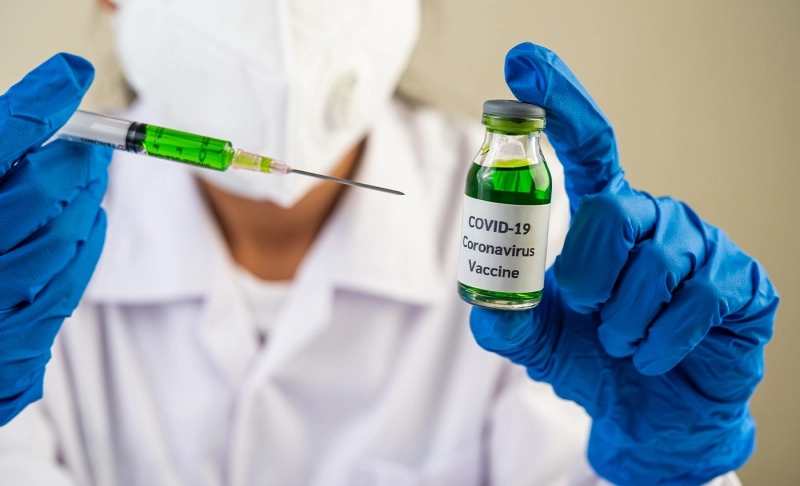By: Nikita Kochhar
January 19 2022

The agency later caveated its findings saying that the data is 'unadjusted' and shouldn't be used to compare vaccinated and unvaccinated populations.
The agency later caveated its findings saying that the data is 'unadjusted' and shouldn't be used to compare vaccinated and unvaccinated populations.A report published by a conspiracy-pseudoscience website Daily Sceptic claims that the COVID-19 infection rate in unvaccinated people is less than those who have taken a jab. The data has been attributed to the U.K. Health Security Agency(UKHSA). The data in the agency's COVID-19 vaccine Surveillance Report shows that the infection rate in people between age groups 30 and 80 years was higher among those who took both the jabs than those who didn't take any. The UKHSA data created a lot of controversies after several anti-vaxxers seized it as proof that vaccines don't work. However, the data is misleading. According to a Daily Mail report dated November 2, commenting on UKHSA data, the Office of Statistics Regulation (OSR) ruled the UKHSA "needs to highlight how behavioral differences could have skewed the figures more effectively." The UKHSA later caveated its findings by saying the data is 'unadjusted' and shouldn't be used to compare unvaccinated and vaccinated populations because there are likely to be systematic differences between the groups. The vaccinated are more likely to get tested because they are more 'health-conscious.' It also suggested that jabbed people may be socializing more freely and thus are more likely to catch the infection. The UKHSA data is based on National Immunisation Management Service (NIMS), a weekly updated data set based on people registering for NHS services. However, considering people don't change their NHS registration details when they move, NIMS likely overcounts the population eligible for vaccines. Therefore, it may be underestimating vaccine uptake. In a blog post dated November 2, UKHSA said that a comparison of COVID-19 infection rates in those who are jabbed and not jabbed should not be used to assess vaccine effectiveness to prevent serious health outcomes. It added that these figures are susceptible to several differences between the groups, other than the vaccine itself, and these biases mean that you cannot use the rates to determine the efficacy of the vaccines. Moreover, the same data set demonstrates the jabs reduce the chance of hospitalization and death from the virus. Therefore, it's clear that UKHSA data has been misconstrued to promote an anti-vax narrative. The COVID-19 pandemic has given rise to a lot of potentially dangerous misinformation. For reliable advice on COVID-19, including symptoms, prevention, and available treatment, please refer to the World Health Organization or your national healthcare authority.